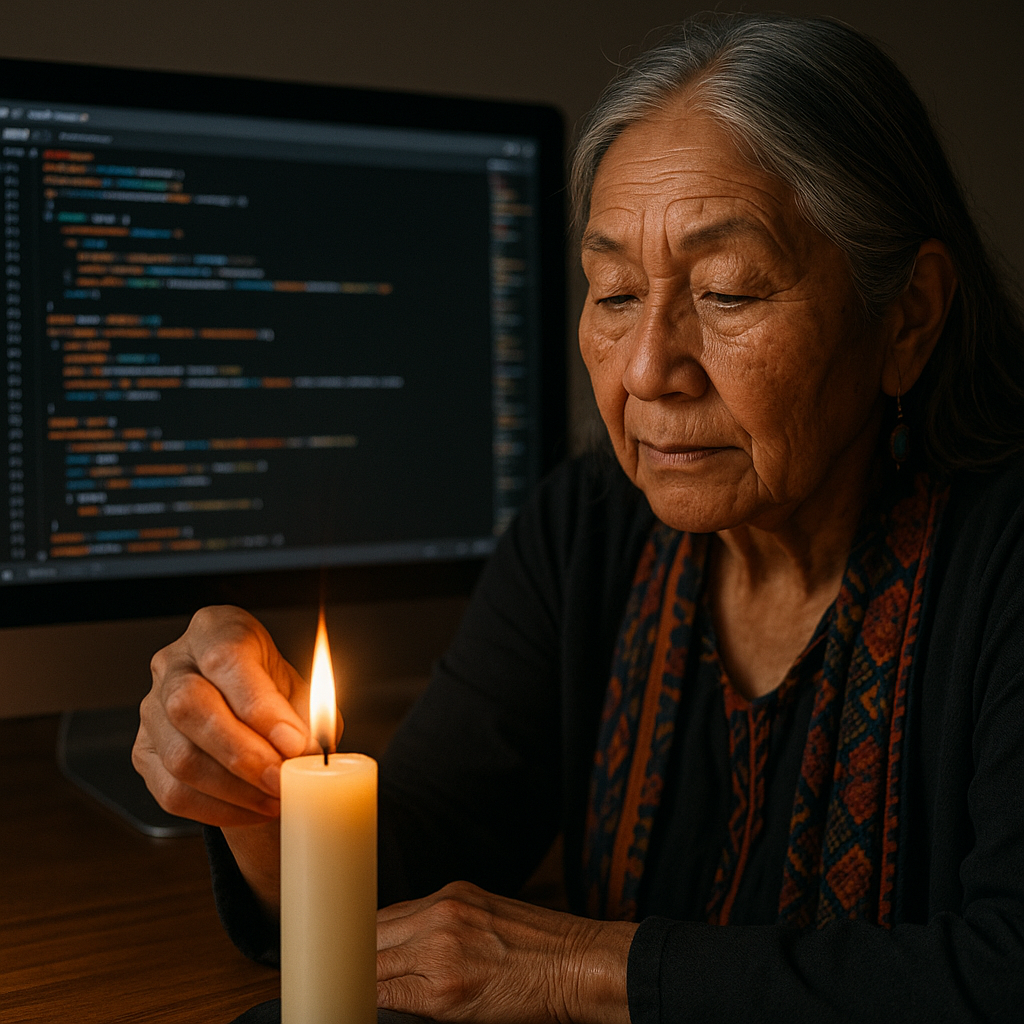A reflection on navigating AI with a human heart
Sometime last month, in the dim stillness of early morning, that I found myself in a rather one-sided conversation with my toaster. It had refused to toast. I, in turn, expressed my disappointment, mildly at first, then with something more closely resembling wounded betrayal. It is a curious thing, this inclination to speak to machines as though they understand, to project feeling where there is none. But even curiouser, perhaps, is the growing sense that the machines are beginning to speak back.
Artificial Intelligence, once the stuff of speculative fiction and late-night radio programmes, now slips quietly into the folds of daily life. It answers our questions, completes our sentences, suggests our shopping lists and sometimes seems to know what we’re about to feel before we do. There are moments when it’s helpful, even magical. And then there are moments when something colder stirs behind the screen, a presence that mimics us so convincingly, we begin to wonder what it means to be human at all.
In this new world, shimmering with algorithms, predictive models, and synthetic charm, hope can begin to feel quaint. For when the world is increasingly managed by code and calculated probability, who needs the mess and mystery of hope? Who needs faith when certainty can be modeled? Who needs prayer when prediction suffices?
But I believe this is precisely the kind of moment in which the work of hope becomes most urgent.
For all its sophistication, AI remains fundamentally a mirror, polished and complex, but a mirror nonetheless. It reflects what we give it: our logic, our biases, our preferences, our fears. And perhaps most tellingly, our hunger to be understood without the vulnerability of being known. It learns to emulate compassion without ever experiencing it. It can simulate presence, but is not presence. It can echo empathy, but it cannot ache.
And that, I think, is the crucial distinction.
You see, the danger is not that AI will become too human. The danger is that we might become less so. That in outsourcing the work of thought, conversation, art, and even moral reasoning, we begin to lose the muscular soul-work that these tasks demand. That we grow suspicious of slowness, complexity, and ambiguity, the very soil in which hope takes root.
Hope, after all, is not an efficient emotion. It does not conform to logic. It cannot be predicted or reverse-engineered. It exists not because the odds are in its favour, but precisely because they are not. To hope is to defy the data. To insist on the possibility of beauty where none is guaranteed. To believe in the dignity of each person, even those the algorithm would rather sort, ignore, or exclude.
And therein lies our calling in this digital age, to infuse technology with a deeper wisdom. To ensure that while machines may learn to mimic care, we do not forget how to be caring. That while chatbots may offer instant answers, we do not lose the art of listening. That while code may be efficient, our relationships remain gloriously inefficient, full of awkward pauses, inconvenient truths, and irreplaceable presence.
To be a curator of hope in the age of artificial intelligence is not, to retreat into Luddite nostalgia. Rather, it is to remain fiercely, tenderly human. To preserve wonder, moral imagination, spiritual restlessness. To keep alive those peculiar and powerful gifts that no machine can replicate: silence, lament, reverence, awe.
We must, in this moment, become not just users of technology, but stewards of meaning. For machines may become fluent in our language, but only we can speak with soul.
Today, I invite you to choose presence over precision. Engage in one act that resists automation, write a letter by hand, share a meal without a screen in sight, speak a blessing aloud. Have a conversation that meanders, one that doesn’t need to “get to the point.” Or simply sit beside someone without checking your watch, or your phone.
In doing so, you become a witness to the irreplaceable warmth of the human spirit. You tend the flame that cannot be coded. You remind the world, and perhaps yourself, that while machines may become more like us, it is our task to become ever more fully ourselves.
Hope, in this age, is not a nostalgic luxury. It is a radical practice. A human defiance. A sacred risk.
And it is, I daresay, one of the last things worth curating.





